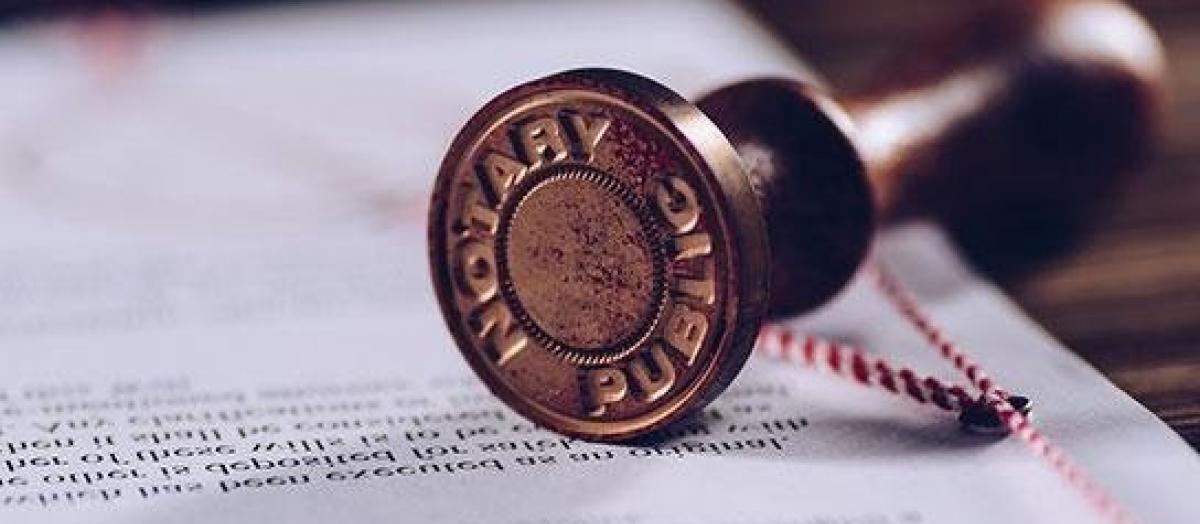Certified Notary Providers: Making Certain Lawful Authenticity and Safety And Security
Certified Notary Providers: Making Certain Lawful Authenticity and Safety And Security
Blog Article
Debunking Notarial Job: Streamlining the Role and Relevance of Notaries
In the intricate internet of legal documentation and verification, notaries stand as columns of assurance and authenticity. Their role, commonly shrouded in secret for many, carries considerable weight in making sure the credibility and honesty of vital papers. As guardians of validity and truth, notaries play a crucial component in our culture, yet their job is not constantly completely comprehended. By untangling the complexities losing and surrounding notarial practices light on the significance of their acts, a more clear understanding emerges of the crucial duty notaries play in maintaining the material of legal and contractual contracts.
The Background of Notarial Job
The background of notarial work days back to ancient people, where scribes played an essential role in recording vital information and verifying documents. This led to the growth of notaries, people appointed by the state to act as impartial witnesses in legal matters.
During the Middle Ages, notaries got prominence in Europe, with their features expanding to include preparing lawful files, accrediting signatures, and preserving documents. The surge of global trade additionally emphasized the significance of notarial operate in confirming agreements and agreements across boundaries.
In the contemporary period, notaries remain to play a vital role in legal and business deals by validating identifications, confirming the credibility of files, and protecting against fraudulence. Their role in licensing the legitimacy of arrangements includes a layer of protection and depend the ever-evolving landscape of commerce and law.

Tasks and Obligations of Notaries
Notaries play a crucial function in confirming the credibility of papers and the identification of signatories. One of their key responsibilities is to witness the finalizing of vital papers, such as wills, contracts, and deeds, to make sure that all celebrations are entering right into arrangements intentionally and willingly.
Furthermore, notaries are charged with administering affirmations and oaths, which are vital in lawful proceedings and the execution of testimonies. They license copies of initial papers, supplying guarantee to institutions that the copies hold true reproductions of the originals. Notaries have to keep accurate documents of all purchases they look after to ensure openness and responsibility. In general, the obligations and responsibilities of notaries are important in securing the honesty and legality of various records and transactions.
Notarial Certificates and Signatures
Exhibiting meticulous focus to information, notarial certificates and signatures function as important elements in confirming the credibility of lawful files. Notarial certificates generally include vital info such as the date of registration, the names of the signatories, a description of the record, and the notary's main seal. These certificates supply a clear record of the notarial act, making sure that the file can be easily identified and mapped back to the notary who supervised the procedure.
Signatures play a critical function in notarial job, as they signify the contract and consent of the events entailed. Notaries meticulously witness the signing of files to verify the identification of the notaries and confirm that they are authorizing of their own totally free will. By affixing their main seal and trademark to the file, notaries certify that the required treatments have been complied with which the document is valid and enforceable.
Essentially, notarial advice certifications and trademarks are the hallmark of credibility in lawful deals, supplying assurance to all events included that the papers are genuine and binding.
Value of Notarial Acts

Notarization Refine Explained
Explaining the notarization process gives clearness on the crucial actions associated with confirming legal records. The notarization procedure usually begins with the individual offering the record link to a notary public. The notary then validates the endorser's identity through appropriate identification approaches. As soon as the identity is validated, the notary ensures that the private signing the document does so willingly and without any coercion.
Verdict

Notarial certificates normally consist of vital information such as the day of registration, the names of the signatories, a description of the document, and the notary's official seal. These certificates provide a clear record of the notarial act, guaranteeing that the paper can be easily identified and read more mapped back to the notary that looked after the process.
By fastening their main seal and signature to the paper, notaries accredit that the necessary treatments have actually been adhered to and that the paper is valid and enforceable.
By confirming the identification of the signatures, confirming their desire to get in right into the contract, and licensing the date and area of the signing, notaries play a critical function in upholding the credibility of lawful papers.After the file is authorized, the notary will certainly affix their main seal or stamp onto the paper.
Report this page